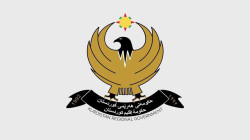KRG to distribute August and September salaries if funded by Baghdad

Shafaq News/ The Chief of Staff of the Kurdistan Regional Government (KRG) Cabinet Omid Sabah stated, on Thursday, that the government would distribute salaries for August and September to public sector employees if funded by Baghdad.
In a joint press statement with the KRG Minister of Education, Alan Hama Saeed, Sabah noted that “a delegation from the KRG will visit Baghdad on Sunday to follow up on the implementation of the decisions made by the Iraqi Economic Council, which recently visited Erbil.”
He emphasized that the primary issue to be addressed during the visit is securing monthly salaries and resolving matters related to this.
Earlier this month, Kurdistan Region President Nechirvan Barzani dismissed concerns about any problems regarding the funding of salaries for public sector employees by the federal government, stating that KRG continues efforts to resolve outstanding issues with the federal government.
"Our policy is clear," he said, "We aim to resolve all disputes within the framework of the Iraqi constitution."
Regarding the funding of salaries from Baghdad, Barzani reassured, "The transfer of salaries is ongoing, and I do not believe there are any issues in this regard."
Employees in the Region have faced ongoing delays in monthly salaries for years. The crisis is rooted in financial issues, including the global drop in oil prices and the Kurdish financial burden from the fight against ISIS.
Despite the Federal Court's acknowledgment of Baghdad's obligation to pay salaries regularly, problems with salary distribution persist, with some attributing these issues to political rather than financial factors.
The delay has become a chronic issue, impacting residents' daily lives. With many dependent on these salaries for basic needs, frequent delays have led to significant psychological and social problems.
In response to the delays, employees increasingly resort to borrowing to cover basic needs, exacerbating their debt and adding social and economic pressure on themselves and their families.





